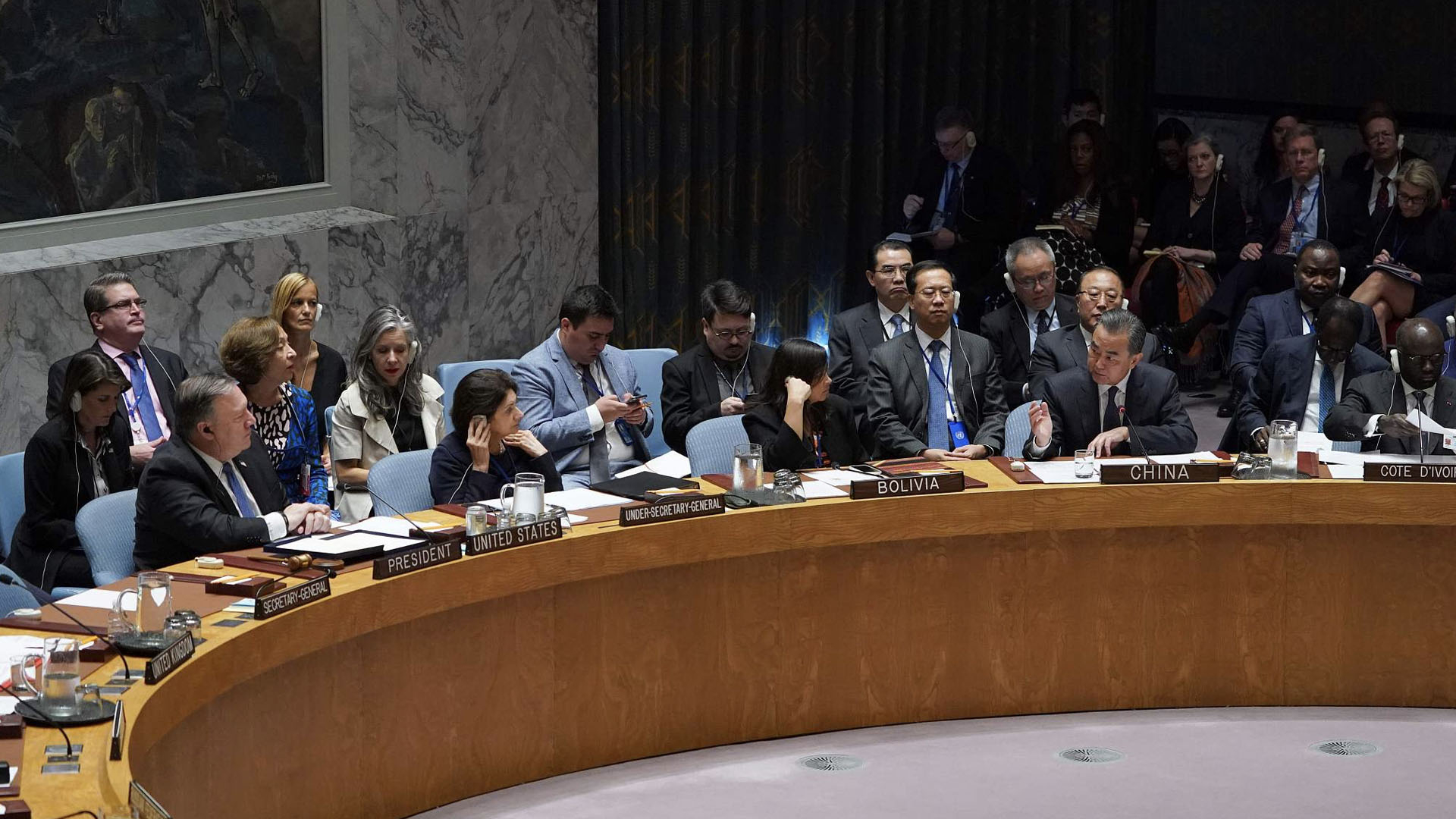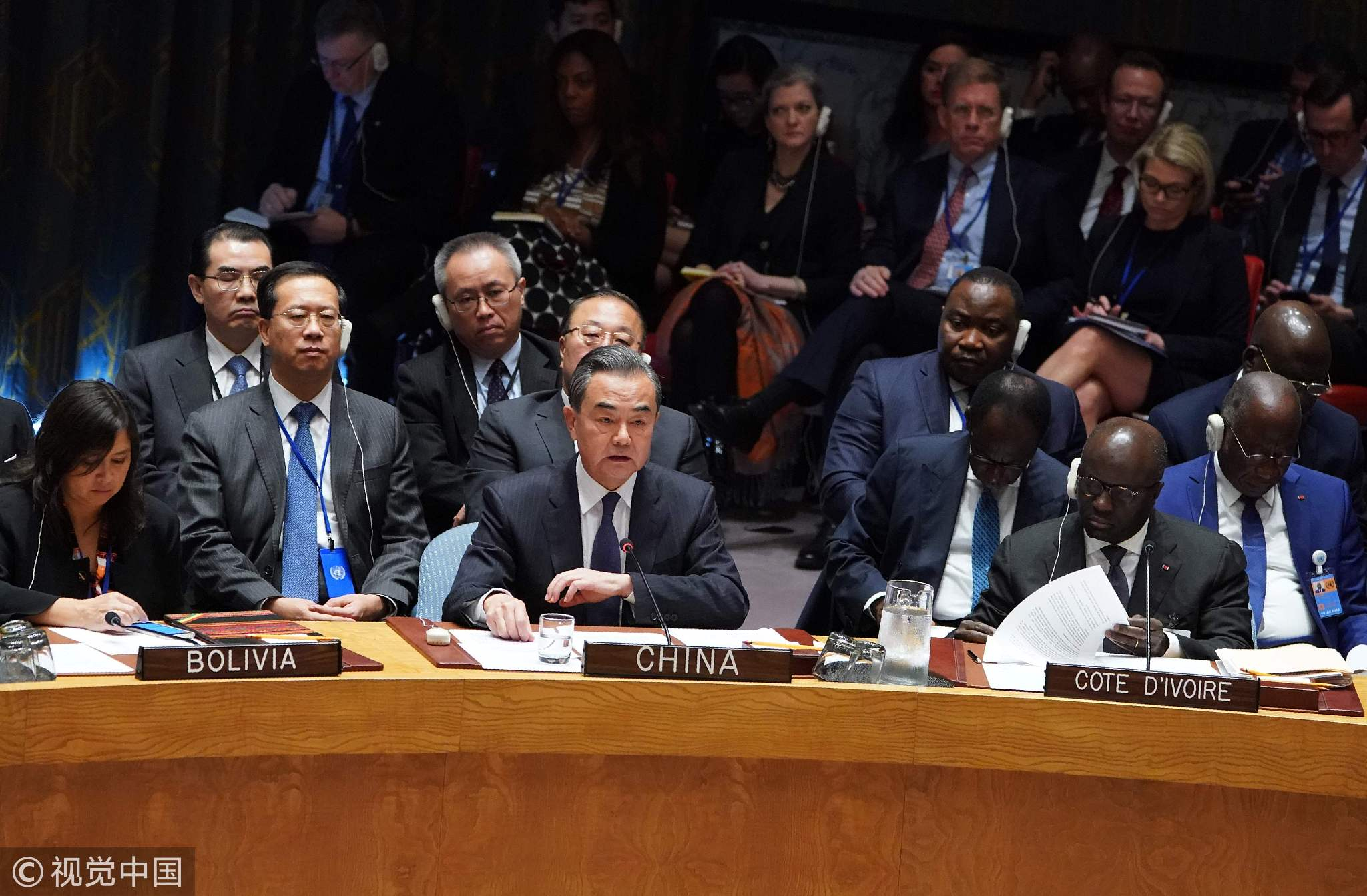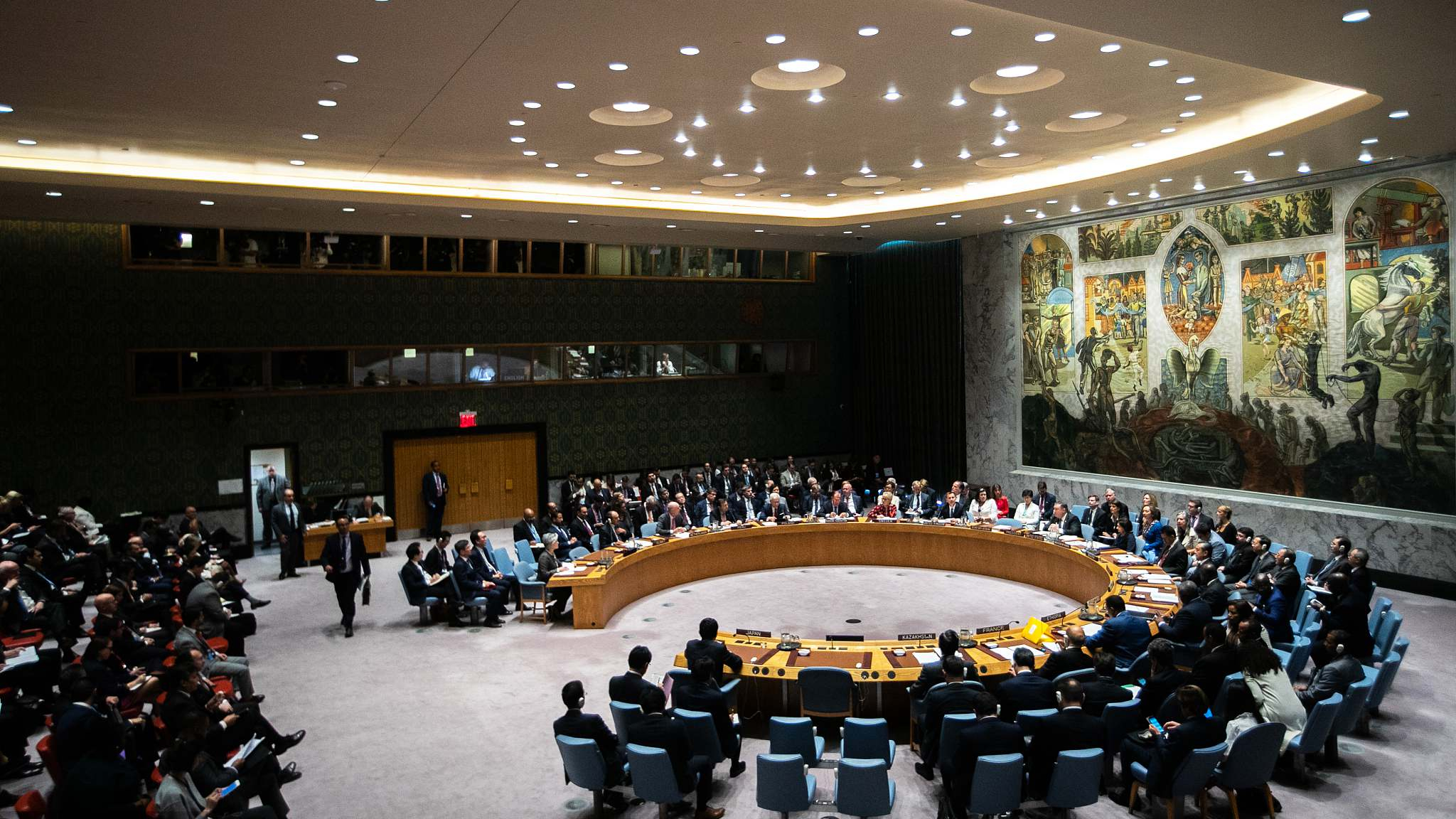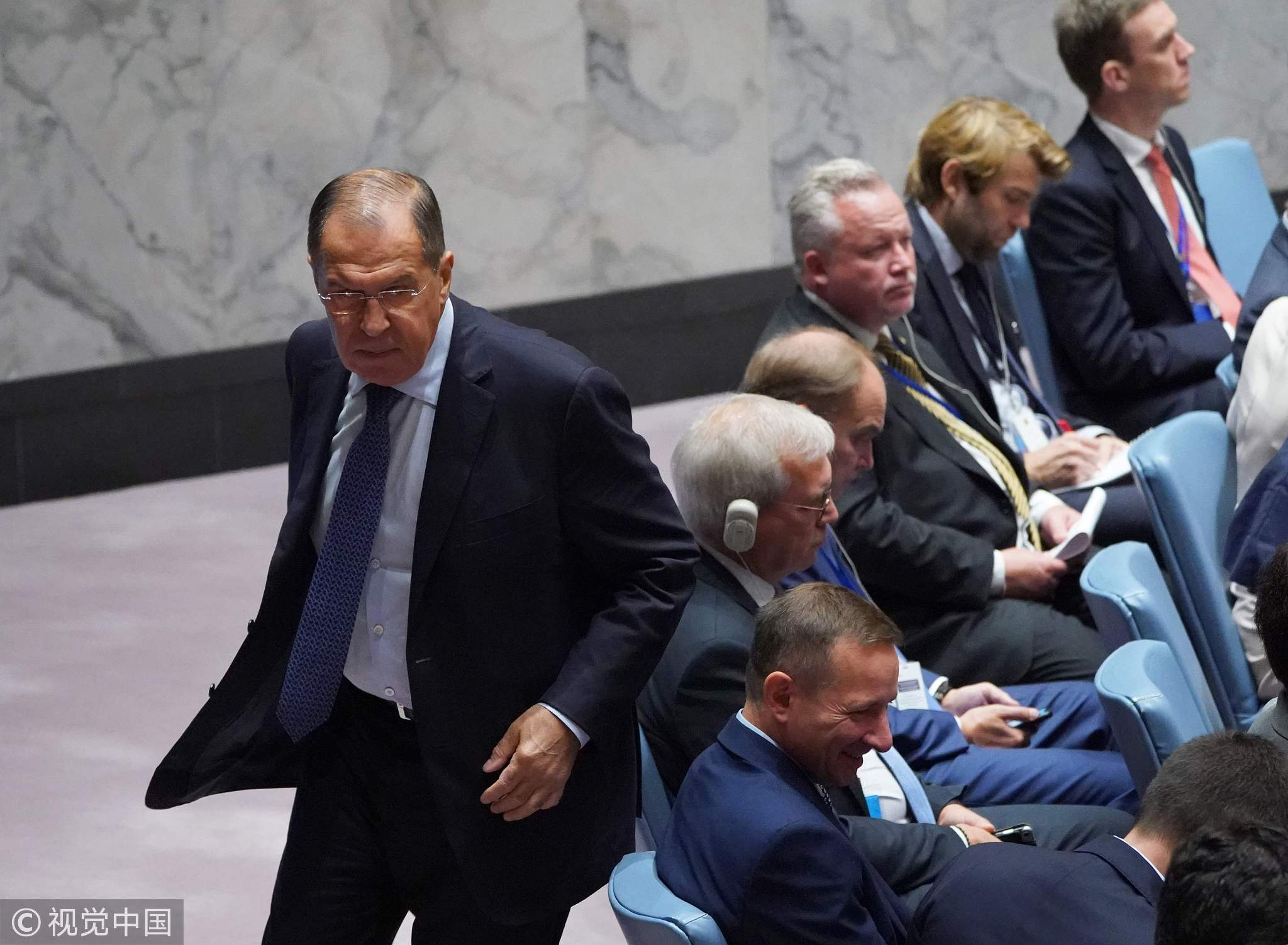
Politics
08:37, 28-Sep-2018
China, Russia urge UN to ease DPRK sanctions while US says no exceptions
Updated
08:27, 01-Oct-2018
CGTN
01:22

China and Russia's diplomats have urged the United Nations Security Council to ease the sanctions on the Democratic People's Republic of Korea (DPRK) to reward Pyongyang for "positive developments," while the US insists no exception should be made.
At Thursday's session, Chinese Foreign Minister Wang Yi and Russian Foreign Minister Sergey Lavrov told diplomats of the 15-member council that Pyongyang should be rewarded for the "positive developments" this year, with US President Donald Trump and DPRK leader Kim Jong Un having met in June and Kim pledging to work toward denuclearization.

Chinese Foreign Minister Wang Yi speaks at the United Nations Security Council meeting on the DPRK, in New York, US, September 27, 2018. /VCG Photo
Chinese Foreign Minister Wang Yi speaks at the United Nations Security Council meeting on the DPRK, in New York, US, September 27, 2018. /VCG Photo
China applauds the political decisiveness and courage demonstrated by DPRK and the Republic of Korea (ROK) leaders and firmly supports the two countries to turn their leaders' consensus into concrete actions, said Wang, adding that China also supports the DPRK and the US to maintain their dialogue and meet each other halfway so as to obtain more tangible results.
Wang emphasized that China's position on the peninsula issue has been consistent, saying that China is committed to achieving denuclearization on the peninsula, safeguarding peace and stability, and resolving issues through dialogue and consultation.
The peninsula issue is essentially one about security. To realize peace on the peninsula, the key is to address the legitimate security concerns of all parties in an appropriate and balanced manner, he said.
The DPRK should suspend its nuclear and missile tests and gradually dismantle related facilities, and the US and the ROK should suspend their military exercises. On this basis, a timely release of a war-ending declaration will help build basic trust among concerned parties, further facilitate denuclearization and put in place the conditions needed for a final peace accord, he added.
The six-party talks remain as an indispensable multilateral platform. The UN Security Council should also form consensus in a timely manner to facilitate and support this process, he said.
Wang noted that there are provisions in Security Council resolutions for the body to modify sanctions if the DPRK complies. He said that "given the positive developments," China believed the council "needs to consider invoking in due course this provision to encourage the DPRK and other relevant parties to move denuclearization further ahead."
Lavrov echoed China's call. He said: "Any negotiation is a two-way street. Steps by the DPRK towards gradual disarmament should be followed by the easing of sanctions." He was also critical of several US attempts to tighten UN sanctions on the DPRK in recent months.

Attendees sit during a United Nations Security Council briefing with Mike Pompeo, US secretary of state, who chairs the session, in New York, US, September 27, 2018. /VCG Photo
Attendees sit during a United Nations Security Council briefing with Mike Pompeo, US secretary of state, who chairs the session, in New York, US, September 27, 2018. /VCG Photo
"Further increase of sanctions goes beyond cutting off financing of banned missile and nuclear programs, and is in fact a threat to North Korean [DPRK] citizens and would bring extreme socio-economic and humanitarian suffering," Lavrov said. Lavrov said the Security Council should send a clear signal in support of the positive momentum on the Korean Peninsula. US Secretary of State Mike Pompeo, who chaired the meeting, warned the council must "set the example" by enforcing sanctions on the DPRK.
Pompeo said: "Enforcement of Security Council sanctions must continue vigorously and without fail until we realize the fully, final, verified denuclearization."
"The members of the council must set the example on that effort," Pompeo added.

Attendees sit during a United Nations Security Council briefing with Mike Pompeo, US secretary of state, who chairs the session, in New York, US, September 27, 2018. /VCG Photo
Attendees sit during a United Nations Security Council briefing with Mike Pompeo, US secretary of state, who chairs the session, in New York, US, September 27, 2018. /VCG Photo
On Wednesday, Pompeo met DPRK Foreign Minister Ri Yong Ho on the sideline of the annual UN gathering of world leaders in New York, and accepted the DPRK's invitation to visit Pyongyang again next month.
The Security Council has unanimously boosted sanctions since 2006 in a bid to choke off funding for Pyongyang's nuclear and ballistic missile programs.
(With input from Xinhua News Agency and Reuters)

SITEMAP
Copyright © 2018 CGTN. Beijing ICP prepared NO.16065310-3
Copyright © 2018 CGTN. Beijing ICP prepared NO.16065310-3